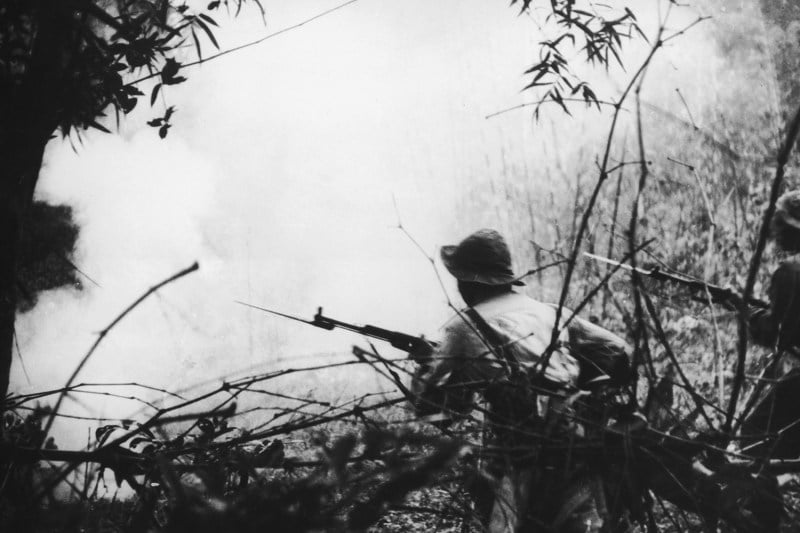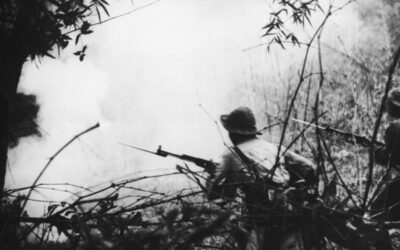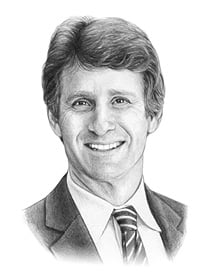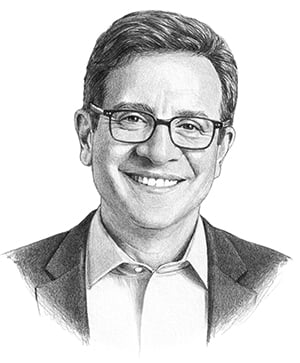The Haunting Legacy of the Vietnam War

The Haunting Legacy of the Vietnam War
Reflecting on one of the first forever wars, 50 years on.
Viet Cong soldiers go into battle near Hue, in central Vietnam, during the Vietnam War, circa 1968. Three Lions/Hulton Archive/Getty Images
Fifty years ago on Wednesday, North Vietnamese forces took Saigon’s presidential palace, marking the end of the Vietnam War—a two-decade-long conflict that shaped the second half of the 20th century. The American War, as it’s called in Vietnam, led to the deaths of millions of Vietnamese people and more than 50,000 U.S. troops. Arguably the first forever war, it is widely remembered as one of Washington’s greatest foreign-policy disasters.
Today, the war continues to haunt global affairs. To mark the anniversary, which the Trump administration has explicitly directed U.S. diplomats in Vietnam not to commemorate, we’re sharing essays on the legacies of the war and how it continues to shape foreign policy.
Fifty years ago on Wednesday, North Vietnamese forces took Saigon’s presidential palace, marking the end of the Vietnam War—a two-decade-long conflict that shaped the second half of the 20th century. The American War, as it’s called in Vietnam, led to the deaths of millions of Vietnamese people and more than 50,000 U.S. troops. Arguably the first forever war, it is widely remembered as one of Washington’s greatest foreign-policy disasters.
Today, the war continues to haunt global affairs. To mark the anniversary, which the Trump administration has explicitly directed U.S. diplomats in Vietnam not to commemorate, we’re sharing essays on the legacies of the war and how it continues to shape foreign policy.
Leaflets stream from the cockpit of a plane, flown by psychological warfare pilots of the 9th Air Commando Squadron at Da Nang Air Base in Vietnam on July 11, 1967.Bettmann Archive/Getty Images
The Ghostly Legacies of America’s War in Vietnam
The United States tried to use Vietnamese beliefs to terrify enemy soldiers, Chris Humphrey writes.
Then-U.S. President Lyndon B. Johnson shakes the hands of soldiers as he visits troops in Vietnam in 1966.Interim Archives/Getty Images
Why U.S. Presidents Really Go to War
As a new book shows, it’s not always about strategy, FP’s Julian E. Zelizer writes.
From left: Robert Downey Jr.—who plays several roles—Duy Nguyen as Man, Hoa Xuande as the Captain, Fred Nguyen Khan as Bon, and Sandra Oh as Sofia Mori in The Sympathizer. HBO
HBO’s ‘The Sympathizer’ Leans Into the Tragic Absurdity of the Vietnam War
The series lampoons the military, academia, and Hollywood portrayals of the era, Jordan Hoffman writes.
South Korean soldiers advance during an assault on an enemy position near Nha Trang, Vietnam, in 1972. David Hume Kennerly/Getty Images
It’s Time for South Korea to Acknowledge Its Atrocities in Vietnam
Seoul and Hanoi can no longer ignore a fraught part of their history, Dien Luong writes.
Donald Sutherland and Jane Fonda perform for American airmen during a F.T.A. Vietnam protest tour near Manila, Philippines, in 1971. AP
Donald Sutherland and the Soldiers Who Resisted Vietnam
The chameleonic actor was also an activist ahead of his time, Lindsay Goss writes.
Chloe Hadavas is a senior editor at Foreign Policy. Bluesky: @hadavas.bsky.social X: @Hadavas
More from Foreign Policy
-

An illustration shows a line of large shopping carts facing down a small Donald Trump figure holding two shopping bags. The stars of China’s flag are in the upper left corner. Why Beijing Thinks It Can Beat Trump
China’s elites have a new confidence in their own system.
-

U.S. Army Chief of Staff Randy George speaks to U.S. soldiers at the Hohenfels Training Area in southern Germany on Feb. 6. A Drawdown of U.S. Forces in Europe Is All but Certain
Here’s how the Pentagon can rebalance its approach to the continent without sacrificing U.S. interests.
-

University of California, Los Angeles students, researchers, and demonstrators rally during a “Kill the Cuts” protest against the Trump administration’s funding cuts on research, health, and higher education in Los Angeles on April 8. Why Authoritarians Attack Universities First
A Yale professor and expert on fascism talks about why he’s leaving the United States under Trump.
-

Dwight D. Eisenhower looks over a piece of paper while sitting on a couch as Robert Cutler looks over his shoulder. How Generations of Experts Built U.S. Power
And now Trump is throwing it all away.











Join the Conversation
Commenting on this and other recent articles is just one benefit of a Foreign Policy subscription.
Already a subscriber?
.
Subscribe
Subscribe
View Comments
Join the Conversation
Join the conversation on this and other recent Foreign Policy articles when you subscribe now.
Subscribe
Subscribe
Not your account?
View Comments
Join the Conversation
Please follow our comment guidelines, stay on topic, and be civil, courteous, and respectful of others’ beliefs.
Change your username |
Log out
Change your username:
CANCEL
Confirm your username to get started.
The default username below has been generated using the first name and last initial on your FP subscriber account. Usernames may be updated at any time and must not contain inappropriate or offensive language.